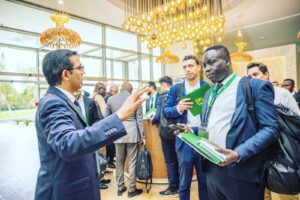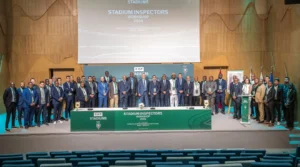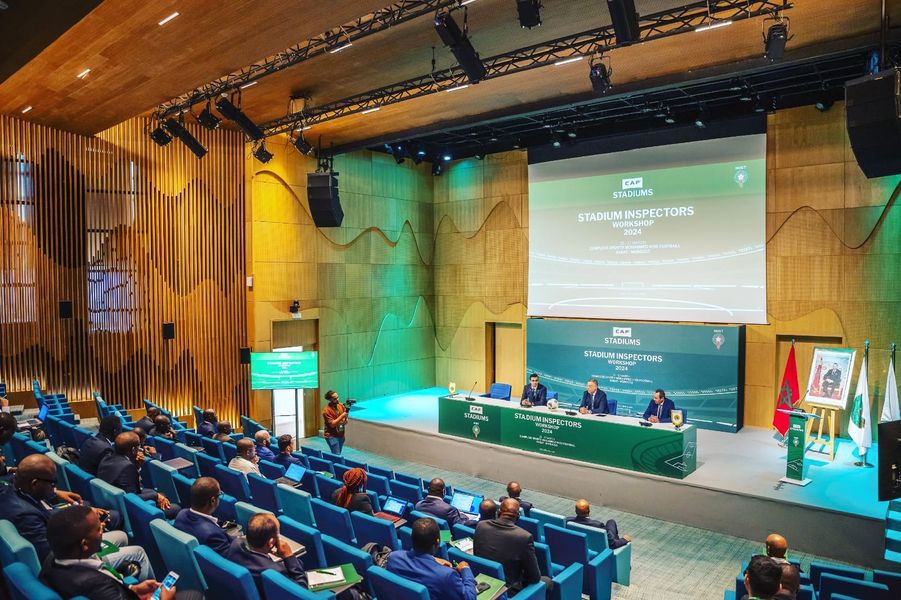The Confederation of African Football (CAF) has recently organised a CAF Stadium Inspectors Workshop in Rabat, Morocco. The aim of the workshop was to strengthen and enhance the commitment of CAF towards African Football Infrastructure.
The workshop was hosted by the Royal Moroccan Football Federation (FRMF) President – Fouzi Lekjaa. The workshop was attended by the stakeholders from the 54 member associations.
As per the sources, the workshop was mainly focused on crucial areas that included the regulatory frameworks. It also included the sessions related to safety protocols and media facilities.

The workshop was majorly conducted to highlight the training stadium inspectors to ensure the compliance with the standards of CAF.
The workshop also introduced the digital tools to streamline the inspection processes of the Club Licensing Online Platform (CLOP) Stadium Module.
Reportedly, Morocco will host the upcoming events of CAF from April 11 to 21, 2024 and FIFA in 2025 and will emphasise its dedication towards the development of sports and football.

The workshop has also emphasised on the areas that needed improvement, such as CAF Stadiums Regulatory Framework, Stadium Inspection Guidelines, Natural and Artificial Pitches and Floodlighting Assessment.
It will also include Safety and Security in stadiums and will ensure the media and TV facilities.
As per the CAF Stadium Regulations 2022, the CAF Stadium Inspectors Workshop was held to train the inspectors of the stadium, who will be appointed by CAF to guide African clubs and associated members to ensure that the stadiums are in line with the required standards of hosting CAF events.

The training will be conducted for three days, during which the candidates will be taken through various theoretical and practical activities. The candidates will be accompanied by visitors at the Stadium with designated CAF Departmental Heads.
The training will test the candidates at the end of the workshop based on their knowledge of inspecting and assessing stadium pitch quality, seating capacity, security, lighting, medical, media, and broadcast, amongst other key facilities required for CAF competitions.

